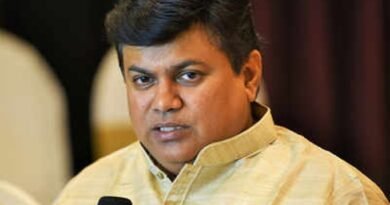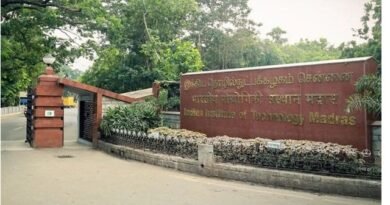PM Modi’s address on higher education under NEP: Key points
New Delhi August 8 dmanewsdesk: Prime Minister Narendra Modi on Friday delivered the inaugural address at the ‘Conclave on Transformational Reforms in Higher Education under National Education Policy (NEP)’ through video conferencing. The conclave organised by the ministry of education along with University Grants Commission (UGC) will also feature education minister Ramesh Pokhriyal as well as academicians and scientists discussing various aspects of the NEP 2020.
Here are the key points from PM Modi’s address:
* The National Education Policy 2020 has been brought out after six years of deliberations and consistent review. This has been a healthy debate and will benefit the education sector of India: PM
* People of any region and community did not say that there is any kind of bias or discrimination in the new policy. This indicates how the NEP had been long-awaited: PM
* Many have been wondering how this policy will be implemented. I want to say that the implementation requires contribution by all. Everybody has to play an important role. As far as the political will is concerned, I am with you: PM
* Every country, while connecting its education system with its national values, moves in accordance with its national goals. The objective is that the education system of the country should keep its current and future generations ‘future-ready’. This is also the basis of India’s National Educational Policy which will set up the foundation for 21st century India–a ‘New India’: PM
* There were no major changes in our education system over the years. As a result, instead of promoting curiosity and imagination in our society, only a rat race continued: PM
* Today is also the death anniversary of Guruvar Rabindranath Thakur. He used to say, “The highest education is that which not only informs us but brings our life in harmony with all existence.” Certainly, the larger goal of the National Education Policy is linked to this: PM
* A new global standard is being established. Going beyond the 10 + 2 structure of the school curriculum, we are now re-structuring into 5 + 3 + 3 + 4 curriculum: PM
* We are now moving from “what to think” and are going to encourage and focus on “how to think” approach to education: PM
* Till class 5, it has been agreed to teach children in their mother tongue only: PM
* The effort now is to emphasize inquiry-based, discovery-based, discussion-based, and analysis based methods for children to learn. This will increase the urge to learn in children and increase their participation in their class: PM
* Every student should have the opportunity to follow their passion. According to their convenience and need, a student can follow any degree or course and can leave. This is the thinking behind removing the concept of “streams” in higher education and introducing multiple entry and exit, credit bank. We are moving towards the era where a person will not remain in one profession throughout his life. For this, he will have to constantly re-skill and up-skill himself: PM
* Concepts like virtual labs are going to carry the dream of better education to millions of students who could not read such subjects before in which lab experiment is necessary: PM
* The dignity of teachers has been given special care in the National Education Policy. The policy emphasises on the training of teachers and continuously upskilling them: PM
* To implement the National Education Policy, we all have to work together determinedly. A new round of dialogue and coordination with universities, colleges, school education boards, different states, different stakeholders is about to start from here: PM
Source: Times of India




